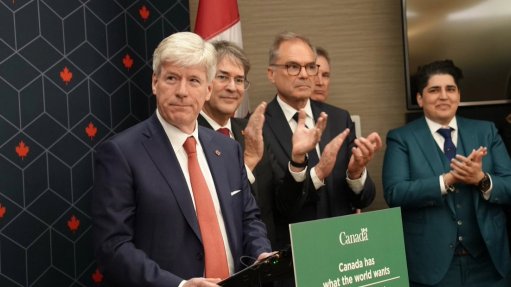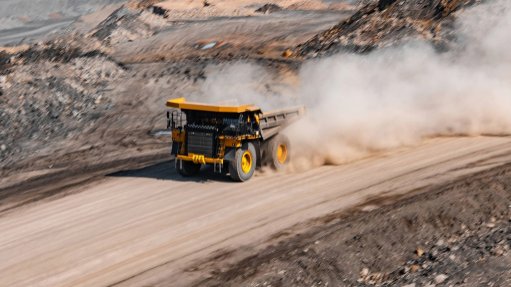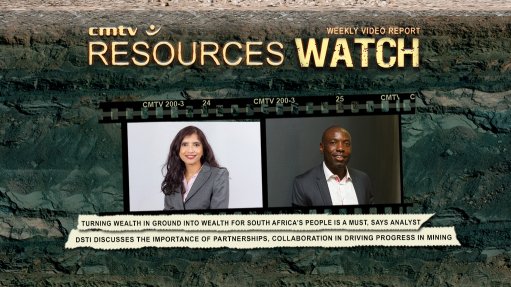The problem with South Africa’s draft Mineral Resources Development Bill
This article has been supplied.
By: Shahil Singh - Legal Advisor at The Green Connection
As the world turned its eyes to Addis Ababa for the Africa Climate Summit and with South Africa in the process of formulating its Nationally Determined Contributions (NDCs), the country is also in the delicate process of redrafting its highly contentious mining law.
While the Draft Mineral Resources Development Bill (2025) is being presented as “modernisation”, instead of delivering reform, it entrenches a system where the Department of Mineral and Petroleum Resources (DMPR) is both responsible for promoting mineral exploitation and for policing the impacts. This serious conflict of interest undermines communities’ rights and threatens environmental and cultural heritage.
While the Mineral and Petroleum Resources Development Act (MPRDA) is meant to ensure that the country’s mineral wealth benefits the people, with custodianship vested in the State, how can citizens be assured of the objectivity required when the same department responsible for promoting mining is also required to protect the human and environmental rights of affected communities? For more than two decades, communities have suffered the consequences of this glaring conflict of interest. These roles are not merely in tension, they are irreconcilable. One cannot be both the champion of an industry and its watchdog. When promotion and protection clash, protection invariably loses.
This conflict is not abstract. It manifests when weak Environmental Impact Assessments still secure authorisation, with enforcement of protections that rarely stand up to powerful interests. Yet, communities who raise legitimate concerns persistently find themselves sidelined by a regulatory system that is structurally predisposed to favour extraction.
A Practical and Constitutional Problem
Section 24 of the Constitution guarantees everyone the right to an environment that is not harmful to health and wellbeing. The State has a binding legal duty to secure ecological protection for present and future generations. Moreover, the National Environmental Management Act (NEMA) enshrines principles such as sustainable development, the precautionary approach, and the polluter-pays principle. This requires impartial and transparent decision-making, that is informed by science. However, when environmental oversight sits with a department whose culture and performance are focused on maximising resource extraction, those principles could be eroded, resulting in skewed governance.
Supported by the Promotion of Administrative Justice Act (PAJA) – which requires that administrative action be lawful, reasonable, and procedurally fair – South African courts have long held that decision-makers must be free from any conflicts of interest. For these reasons, entrusting environmental authorisations to a department with an explicit economic interest in promoting mining, is incompatible with these standards.
Protecting Communities: Lessons from Comparative Practice
Across South Africa there are many examples of communities who suffer the consequences of mining. Small-scale fishers and farmers, rural residents and coastal communities often live in the shadow of mines that pollute the water source and degrade the land they depend on, which could severely impact livelihoods. However, when they seek protection, they are confronted by a regulator that, too often, prioritises extraction. Unfortunately, this environmental injustice often affects poor, black rural communities – the very people the Constitution’s transformative vision seeks to empower.
Globally, it is recognised that environmental regulation cannot credibly be housed within departments who also have the mandate to promote industry. In Canada and Australia, environmental assessments and approvals are overseen by independent environment agencies or by departments whose core mission is ecological protection. This is the foundation of impartial regulation, which South Africa once recognised in its “One Environmental System”. However, political pressure and institutional resistance eroded the initiative – meant to harmonise environmental authorisations across sectors and vest them in the Department of Forestry, Fisheries, and the Environment (DFFE) – leaving the DMRE to hold the pen over mining approvals.
The Path Forward
The solution is both simple and urgent: disentangle these mandates. Let DMRE focus on mineral policy and industry regulation and make DFFE fully responsible for testing environmental viability – guided by the principle that economic development must proceed within ecological limits, not at its expense. Unfortunately, the Draft Bill does little to correct this flaw. Instead, it retains a system where mining promotion and environmental protection sit uncomfortably in the same office, to the detriment of people and nature.
This is why we must act now, while the MPRDA is being redrafted. South Africans must call on Parliament to confront and correct the injustices of the past. This means making submissions, raising your voices and demanding bold, accountable action from decision-makers. The power to effect the changes we need, rests in the hands of the people who have elected the government to power.
A Constitutional Imperative
This is not only a matter of good governance, but also a constitutional imperative. In addition to Section 24, Section 195 of the Constitution further requires public administration to be accountable, transparent, and responsive. A system designed around institutional conflict, violates both.
If we are serious about safeguarding our environment, fulfilling our international commitments on climate and biodiversity, and upholding the dignity of communities who live with the impacts of mining, then the conflict of interest must end. This is just as much an environmental issue as it is an issue of justice for the people of this country.
Conclusion
The Draft Mineral Resources Development Bill is being presented as a modernisation of South Africa’s mineral law, but this needs more than simply updating definitions. True modernisation requires structural reform that aligns our laws with constitutional principles, environmental justice, and international best practice. By resolving the conflict of interest, the Bill risks entrenching the very problems that have plagued our mineral governance for decades, through the apartheid era. South Africa deserves better, a legal framework where environmental protection is not an afterthought, but a central pillar of our democracy.
Article Enquiry
Email Article
Save Article
Feedback
To advertise email advertising@creamermedia.co.za or click here
Press Office
Announcements
What's On
Subscribe to improve your user experience...
Option 1 (equivalent of R125 a month):
Receive a weekly copy of Creamer Media's Engineering News & Mining Weekly magazine
(print copy for those in South Africa and e-magazine for those outside of South Africa)
Receive daily email newsletters
Access to full search results
Access archive of magazine back copies
Access to Projects in Progress
Access to ONE Research Report of your choice in PDF format
Option 2 (equivalent of R375 a month):
All benefits from Option 1
PLUS
Access to Creamer Media's Research Channel Africa for ALL Research Reports, in PDF format, on various industrial and mining sectors
including Electricity; Water; Energy Transition; Hydrogen; Roads, Rail and Ports; Coal; Gold; Platinum; Battery Metals; etc.
Already a subscriber?
Forgotten your password?
Receive weekly copy of Creamer Media's Engineering News & Mining Weekly magazine (print copy for those in South Africa and e-magazine for those outside of South Africa)
➕
Recieve daily email newsletters
➕
Access to full search results
➕
Access archive of magazine back copies
➕
Access to Projects in Progress
➕
Access to ONE Research Report of your choice in PDF format
RESEARCH CHANNEL AFRICA
R4500 (equivalent of R375 a month)
SUBSCRIBEAll benefits from Option 1
➕
Access to Creamer Media's Research Channel Africa for ALL Research Reports on various industrial and mining sectors, in PDF format, including on:
Electricity
➕
Water
➕
Energy Transition
➕
Hydrogen
➕
Roads, Rail and Ports
➕
Coal
➕
Gold
➕
Platinum
➕
Battery Metals
➕
etc.
Receive all benefits from Option 1 or Option 2 delivered to numerous people at your company
➕
Multiple User names and Passwords for simultaneous log-ins
➕
Intranet integration access to all in your organisation


















